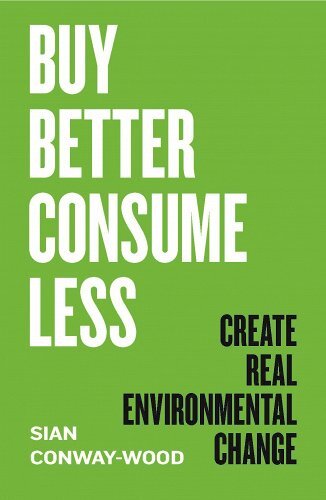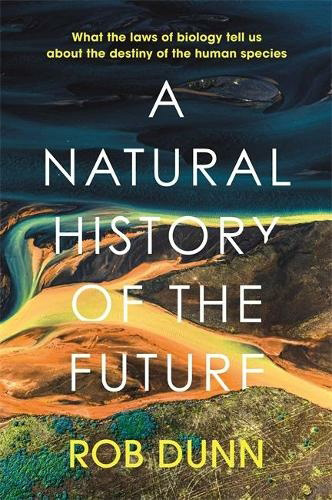Jeremy Williams's Blog, page 71
February 24, 2022
Rwanda and Peru lead the way towards a plastics treaty
When I was an International Relations student, I enjoyed telling people that I was on my way to my Politics of Hazardous Technologies lecture, because there was a 95% chance that it was more interesting than the lecture they were headed to. Global treaties were a recurring theme in that particular course, as we looked at how the world had struggled against nuclear proliferation, CFCs, or landmines.
Plastic was not on the agenda at the time, but if you were taking that course now, it would be...
February 23, 2022
Black Climate Week and why it matters
It’s a cliche to say that the environmental movement is too white, however true it may be. But when it’s repeated unthinkingly, it can obscure the contributions of people of colour to the climate debate. Because marginalised communities are at the forefront of environmental injustice, there has always been grassroots action against pollution, industry, logging or land rights. These actions don’t necessarily fit neatly into the ‘green’ box and can be overlooked.
Perhaps it’s more true to say ...
February 22, 2022
Climate movies to watch after Don’t Look Up
Don’t Look Up has been a much discussed movie in climate change circles, a movie that is very obviously about climate change despite not mentioning it. It relies instead on a plot about an inbound meteorite that people are either panicking about or refusing to acknowlege. It’s a good satire and I enjoyed it, and it was interesting to hear director Adam McKay talk about it. He says that he feels the urgency of climate change “in my bones”, and that he can’t imagine making movies in future that do...
February 21, 2022
Buy Better, Consume Less, by Sian Conway-Wood

When people start thinking about social justice or the environment for the first time, their own consumer choices are often a starting point. What brands should I be avoiding? Which ethical alternatives should I try? But if you keep digging, bigger issues soon start to surface. What if the problem is deeper than the sum total of all our individual choices? What if it’s systemic?
Sian Conway-Wood has been on that kind of a journey, and it comes across well in the pages of Buy Better Consum...
February 19, 2022
What we learned this week
In case you missed it, an article from me on the promise and the perils of hydrogen energy, for Mint Magazine.
I was under the impression that Scotland was the only country to put any money behind loss and damage at COP26. But not so: the Belgian region of Wallonia put up a million alongside them. First I’ve heard of this regional climate leadership.
I wrote recently about innovative approaches to plastic in Africa. Practical Action have something similar here on new approaches to waste....
February 16, 2022
Interview: Council climate scorecards and how to use them
Last month Climate Emergency UK released their Council Climate Scorecards , which assessed every available council climate action plan in the UK. I spoke to Isaac Beevor, Campaigns and Policy Officer at Climate Emergency UK, about the exercise and how it can be used.
What are the Council Climate Scorecards?
The Council Climate Scorecards are an assessment of every local authority’s climate plan or strategy. They’ve been created using our own methodology, which is based off of our Climate Ac...
February 15, 2022
What do we do about Britain’s housing stock?
Last week I wrote about Insulate Britain and the state of Britain’s homes – potentially the oldest housing stock in the world, and hardly fit for a low carbon future. It is widely recognised that they need to be upgraded and insulated, but government schemes to improve housing have been unsuccessful.
The New Economics Foundation have been working on this problem, and recently launched the Great Homes Upgrade campaign. It targets the 19 million homes in the country that score C or below on th...
February 14, 2022
Book review: A Natural History of the Future, by Rob Dunn

If you think of your favourite sci-fi film or franchise, is there any room for nature in it? “Most depictions of the future do not even include nonhuman life” Rob Dunn observes. “We imagine a future in which we are the only living protagonists.”
That’s something the book sets out to correct, looking at a series of different tendencies or ‘laws’ of nature, and how they will unfold in the years to come. These laws include things like the fact that more diverse ecosystems tend to be more st...
February 12, 2022
What we learned this week
“Focusing only on climate can end up absolving policymakers of their failures to climate-proof their citizens.” An important reminder from Fred Pearce that disasters have multiple causes, and overplaying the climate factor lets people off the hook for other localised failings.
After accelerating sales in EVs last year, we’ve got an an interesting decade on decade comparison: Every week, more electric cars are sold around the world than the whole sales total for 2012.
“Intensive farming sys...
February 11, 2022
Building of the week: Friendship Hospital
It’s been a while since RIBA announced an International Prize, having last named a ‘world’s best new building’ in 2018 (this school in Brazil). It’s back and the latest winner is an interesting choice: Friendship Hospital in Shyamnagar, rural South-West Bangladesh.

The hospital is built from bricks made on site, making it a product of its landscape. And it was built by local people, making it a product of the community. This involvement was important to the architect, Kashef Chowdhury, b...



